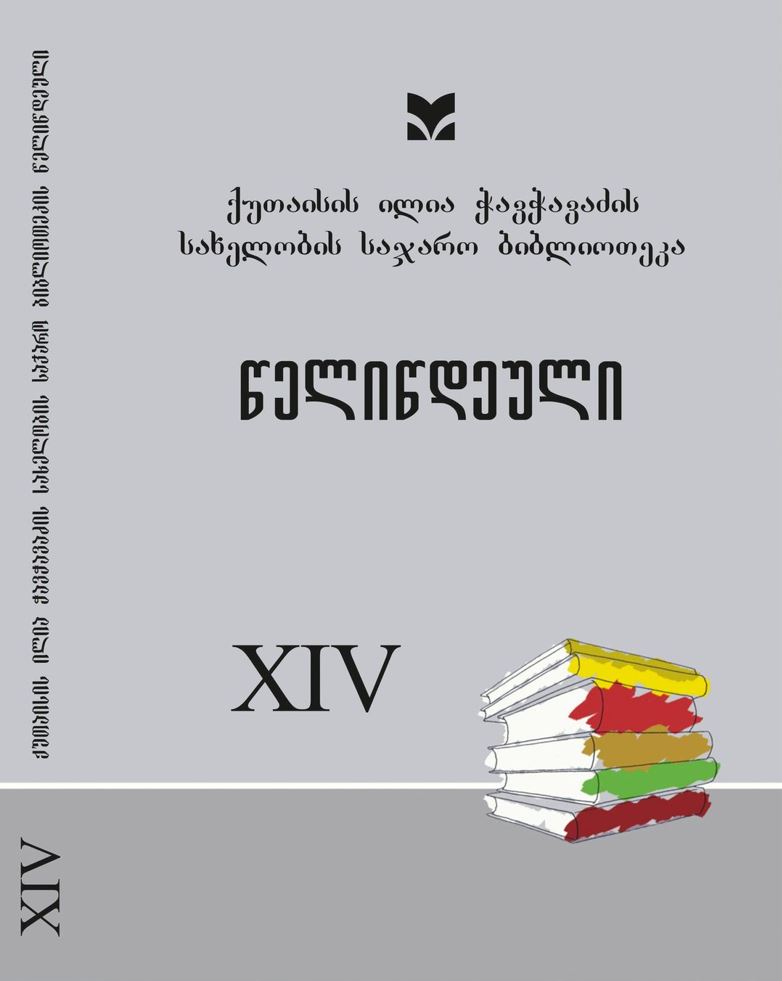Not Overcame Humanism
(According to the Novel by Shorena Lebanidze „Manana Anua. 52 Days of the Slavery“)
DOI:
https://doi.org/10.61491/yk.14.2022.6993Keywords:
Abkhazia in modern fiction, Shorena Lebanidze΄s novel „Manana Anua. 52 Days of the Slavery“Abstract
The book „Manana Anua. 52 Days of the Slavery“ by Shorena Lebanidze reflects the tragedy of war and thoroughly describes the 52-day captivity of Yuri Anua΄s wife, Zoia Adamia (now Mother Mariami), and his daughter, Manana. Yuri Anua was a subdeacon in the Koman church named after John Chrysostom and the restorer of Vasilisko spring. Outside the church, only bullets and death awaited the people inside.
In the novel, common sense and spiritual strength stand against the cruelty of war. Yuri Anua and Father Andria (Kurashvili) sacrificed themselves. Yuri Anua, an Abkhazian by ethnicity, had no choice between Georgians and Abkhazians. His choice, desire, and spiritual longing were for reconciliation.
Father Andria was not forgiven for his answer: «This is the Lord›s land!» to the question, „Whose land is it?“
The work is a first-person narrative, and the feelings expressed are intense. A mystical harmony is created, where „the deceased (Father Andria - N.P.) lying near the icons is saved from the destructive force of death“. Manana Anua, dressed in the priest›s robe, and the women entrusted to God›s grace, pray. Impressive and convincing is the short but spiritually deep episode of how „a pious person with a special mission was born from 27-year-old Manana Anua from Koman“.
The story, narrated by a real person, has been transformed into a novel by the writer. The driving force of the action is war; it shows the true face of the people without a mask. There are lazy, cowardly, and cruel people, as well as those who express kindness and have not become callous, like Rafik Achba. The Georgians had saved Rafik Achba›s brother from the cruelty of the Mkhedrioni members during the military coup in Georgia that had taken place before the war in Abkhazia started. The kind-hearted brave man accepted grace and promised himself: „I will forget the hostility toward the Georgians, and I will not forget the saving of my brother. I will save everybody God allows me to save“. He was the person who protected Manana Anua and her mother from hatred and death, sending them safely to Tbilisi. This book had its continuation in real life: it was published twice, in 2015 and 2019, and translated into Abkhazian (Translator - Irma Osia) and Turkish (Translator - Hasan Celik) languages. After the Abkhazian edition, one of the protagonists, Rafik Achba, the same as Rafik Aiba, familiarized himself with the book. He expressed his willingness to have his real name in the book, and his wish was fulfilled in the second edition. Rafik Aiba holds an important position in Abkhazia.
The title of the article, „Book about Hope and Tragedy“, refers not only to the discussed novel but also to the daily reality of Abkhazia, especially in Samurzaqano, where there are still Georgians living with the document „Temporary Right to Live“. Students from Shota Meskhia Zugdidi State Teaching University have dedicated a small volume of stories to the great hope and huge tragedy of Georgians living under this „right“. In general, the subject of our research is the role of public diplomacy in Georgian-Abkhazian relations and the strengthening of ancestral and general human values. The novel is one part of the victory of words and it also encompasses hope and tragedy. Each episode can be transferred into each plot.




